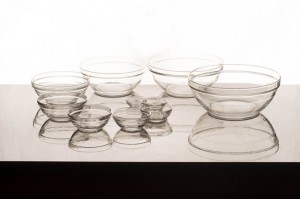Industries turn to glass for packaging safety
The issue of safety, especially among food and personal products manufacturers, is coming to the forefront. A recent study of consumers in Europe showed that more than half of respondents were worried about the safety of plastic packaging, especially as it relates to food.
Glass perceived as safe for food contact
Six out of ten consumers indicated that they were most concerned about plastic food packaging. Nearly half of consumers expressed reservations about the safety of metal food containers, primarily metal beverage cans. In contrast, only 8% of study participants were concerned about contamination from glass containers. Consumers specifically cited food contamination and chemical contamination from leaching as major concerns. More than 8 of 10 consumers think that contamination from packaging could pose a risk to human health.
61% consumers said that they trusted glass as a packaging material. This is up from 48% of consumers who said they trusted glass as a food packaging material in 2010.
The preference of consumers for glass packaging comes at an inconvenient crossroads: fewer efforts are being made to recycle container glass at a time when certain producers are looking to increase the amount of glass packaging to allay consumer concerns about safety.
Glass is inert, which means that it can “contain” virtually anything without interacting with it. That makes it a good choice for packaging from a safety perspective. Glass is also infinitely recyclable; it can be reformed an endless number of times without any significant degradation in quality or safety.
Glass is also attractive from an ecological perspective: when recycled, it reduces the amount of energy required to reform it into a new container. When it is discarded, it does not interact with the environment in a negative way.
New studies show that even organic products can be a source of known endocrine disruptors like bisphenol-A (BPA) and phthalates because these products pick up chemicals from their plastic packaging. These and other chemicals may also be present in other materials that may come into contact with food – like countertops, for example.
This makes glass a highly desirable surface in the kitchen and bathroom. Additionally, glass is easy to clean and sanitize, and can stand up to most household cleaning agents.
If you’d like more information about incorporating glass into your kitchen, please visit the rest of our site. If you’d like to purchase Glassprimer™ glass paint, which is specially designed to bond with glass surfaces, please visit our online store .
Photo Credit: Scott Atwood, via Flickr.com


